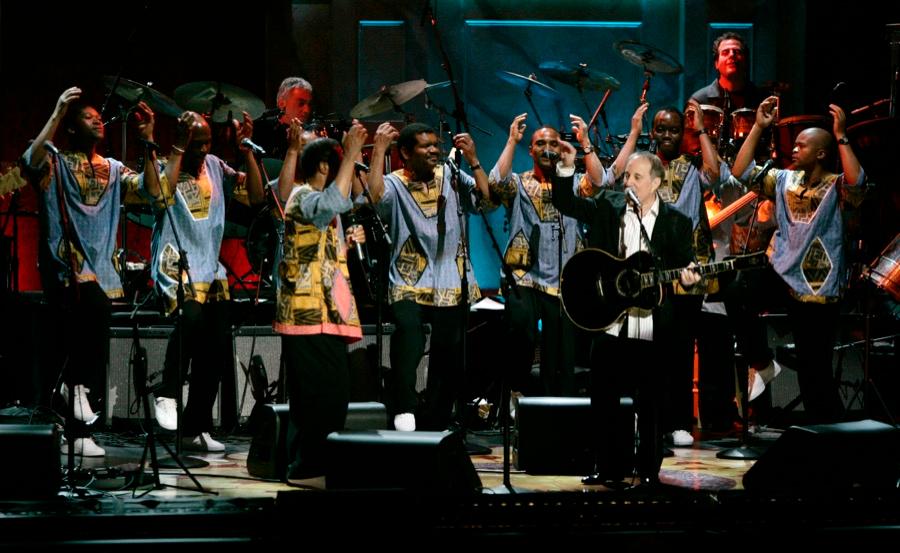Paul Simon, front right, performed with members of Ladysmith Black Mambazo for the first time in several years during a tribute at the Warner Theater in Washington on May 23, 2007.
This year marks the 30th anniversary of Paul Simon's album “Graceland.” And its musical, cultural and political significance is worth noting.
As a lyricist, Simon was always telling stories. His 1986 release was no different. There was “You Can Call Me Al,” a song about a man in a midlife crisis. And the title track begins “the Mississippi Delta was shining like a National guitar.”
But what made “Graceland” different was its sound. To an American audience, the music was new, fresh and unfamiliar. At the time, Simon was influenced by South African music, specifically the album “Gumboots: Accordion Jive Hits, Volume II.” According to Georges Collinet, host of the PRI music show Afropop Worldwide, the album raised Simon’s ear "and he said, 'Wow, I want to work with something like that.'"
Simon recorded the album in Johannesburg, South Africa, with local musicians, including the a cappella group Ladysmith Black Mambazo.
This was in the midst of the anti-apartheid struggle. On the one hand, Simon ignored the calls to boycott the apartheid regime and went to South Africa, spending money in the country. But he also shined a spotlight on the injustices there.
Collinet was working in Paris for Voice of America at the time. Collinet, by the way, is a Cameroonian-American and followed South Africa's politics and music closely. When “Graceland” was released, Collinet admits that at first, he had “mixed feelings, but was more in favor of Paul Simon.” After all, Collinet says, Simon “was playing with black musicians” and “wrote a lot of these songs with South African musicians.”
In 1987, a year after the album came out, a bunch of globally obsessed music aficionados got together at a pub in London and came up with the phrase “world music.” Sure, it quickly became a marketing tool. But to a certain degree, Simon helped seduce Americans to sounds around the globe.
Collinet agrees: “Paul Simon opened American ears to music, to African music.”
And “Graceland” at 30 years old still holds up.
“Some of the songs are fantastic,” says Collinet. “As long as you remain close to the traditional, it’s beautiful.”
We want to hear your feedback so we can keep improving our website, theworld.org. Please fill out this quick survey and let us know your thoughts (your answers will be anonymous). Thanks for your time!
